Creating a dining room that is both stylish and functional is an exciting journey that allows you to express your unique taste while optimizing the space for gatherings with family and friends.
The dining room is more than just a place to eat; it’s a central hub for entertaining, celebrating, and making lasting memories. Whether you’re starting from scratch or looking to refresh your current setup, considering both design and decor elements is crucial for achieving a harmonious and inviting atmosphere.
In this guide, we’ll explore the key aspects of dining room design, from space planning and lighting to color schemes and furniture selection.
We’ll also share some decor tips that can enhance your dining area’s aesthetic appeal, such as choosing the right textiles, artwork, and accessories.
By thoughtfully integrating these design ideas, you can transform your dining room into a space that meets your practical needs and exudes your warm style.
Join us as we dive into creative and practical tips that will inspire you to reimagine your dining room. Whether you prefer a modern, minimalist look or a cozy, traditional vibe, these ideas will help you create a dining room that is truly the heart of your home.
You should start by deciding on a theme or style that reflects your taste, whether it’s modern, traditional, farmhouse, minimalist, or something else. This will help guide your choices for furniture, colors, and accessories.
Blog Content
Design Considerations:
1. Layout and Space Planning:
Lighting:
Natural Light: Maximize natural light with windows or skylights.
Artificial Lighting: Incorporate a mix of ambient, task, and accent lighting. A chandelier or pendant light over the table can serve as a focal point.
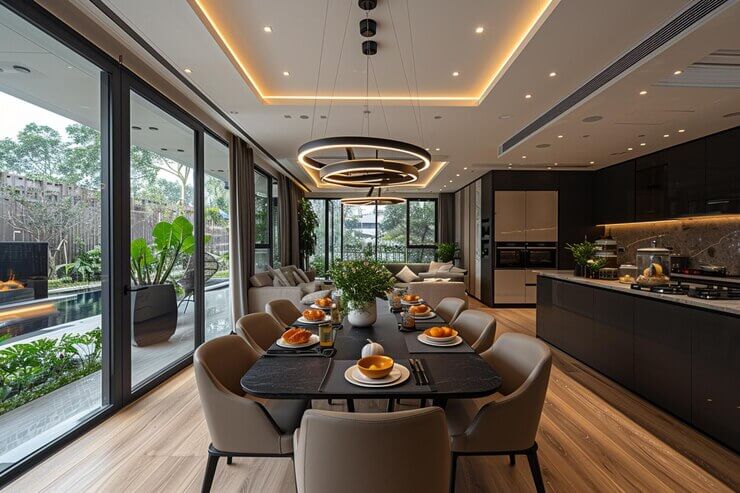
In this open-concept dining room and kitchen having Large windows on the left side let in plenty of natural light and offer a view of a well-maintained outdoor area with greenery and above the table, there are contemporary circular light fixtures that reflect a luxury feel.
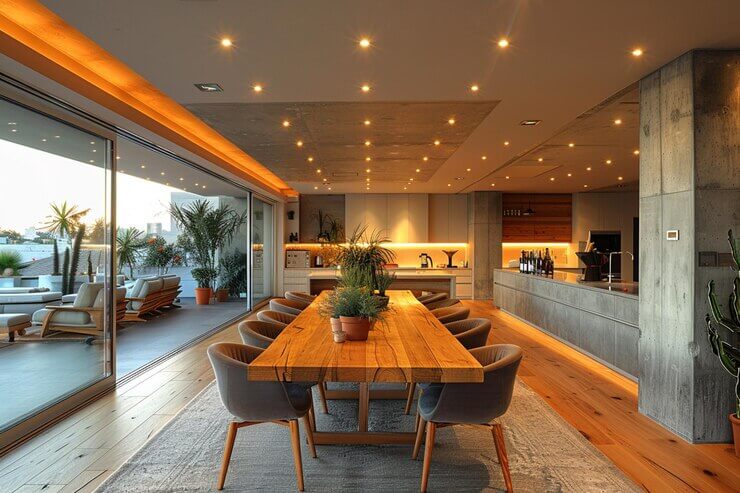
Color Scheme:
Choose a color palette that reflects the mood you want to create. Neutral tones can provide a calming effect, while bold colors can add energy.
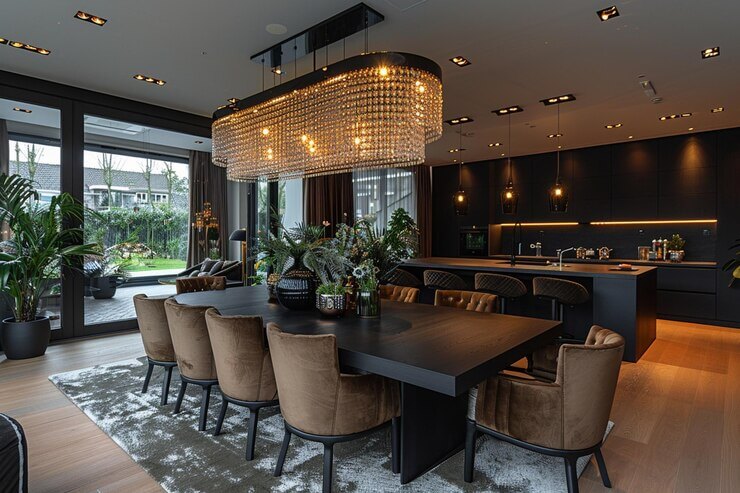
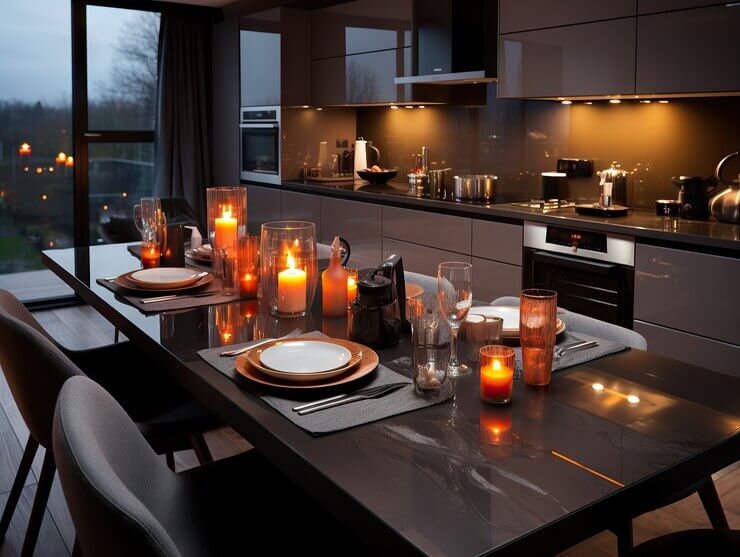
2. Materials and Finishes:
Flooring: Consider durable and easy-to-clean options like hardwood, tile, or laminate.
Walls and Ceilings: Use materials and finishes that complement the overall design style of your home.
3. Furniture:
Table and Chairs: Select a table size that fits the space and accommodates your needs. The chairs should be comfortable and match the style of the table.
Storage: Incorporate sideboards, buffets, or cabinets for storing dining essentials.
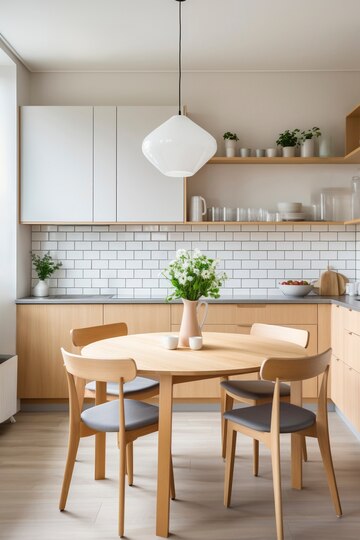
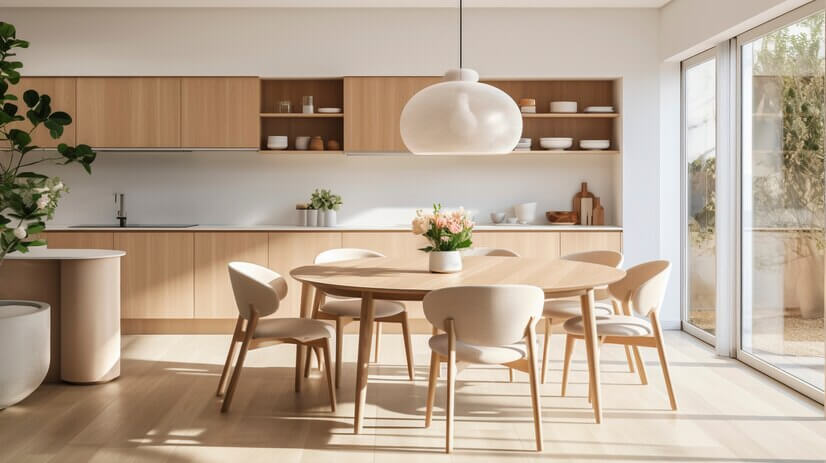
Furniture Placement: Ensure there is enough space around the dining table for chairs to be pulled out and for people to move comfortably.
Flow: Maintain a natural flow from the kitchen to the dining room and other areas of the home.
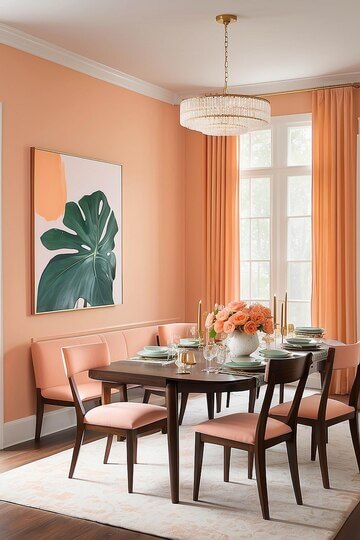
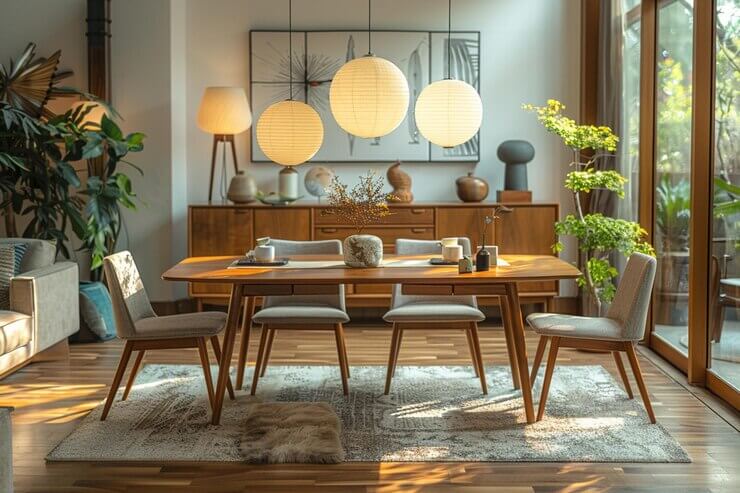
Design and decor are distinct yet complementary aspects of creating a harmonious and functional dining room. Let’s break down the decor aspect on the next page.
